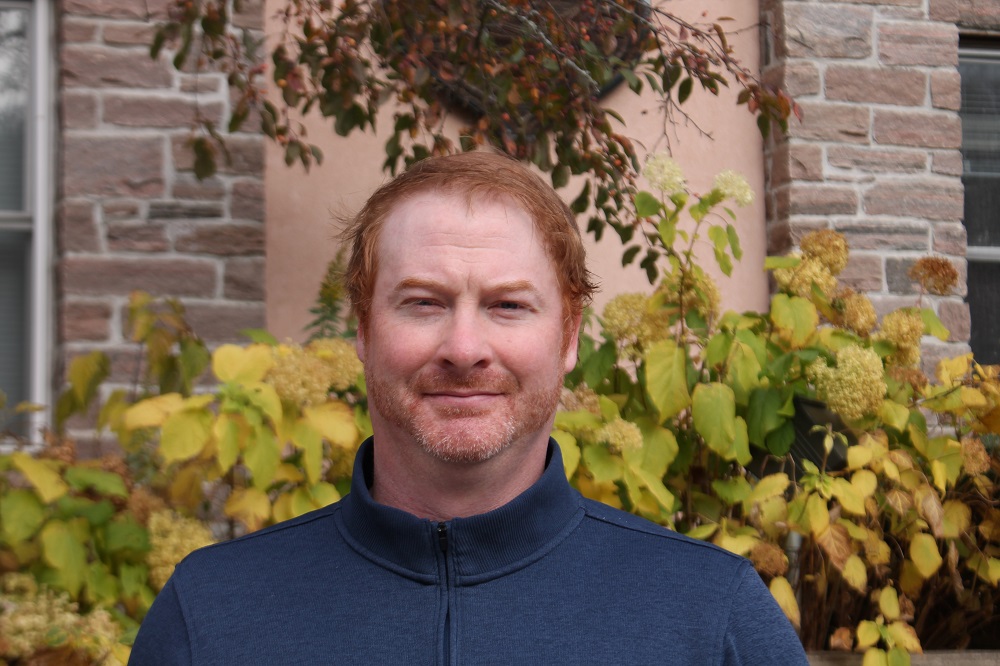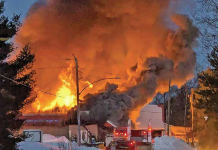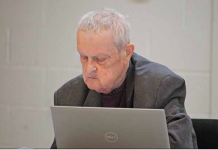If the County’s four municipalities were to implement a municipal accommodation tax (MAT), it could generate more than $3.4 million in revenue annually, director of economic development, Scott Ovell, told County council July 26.
In a written report, Ovell based his projections on a calculation of 1,300 short-term rental hosts being charged a four per cent MAT. He said 80 per cent would have to remit the tax with a medium nightly rental rate of $348, and based on an average occupancy rate of 65 per cent.
The director said it would more than cover some preliminary items in the 2023 economic development and tourism budget, such as wayfinding signage, marketing, Hike Haliburton programs, economic development strategy works and web design and maintenance.
“The savings created by this approach could then be redirected towards other programs and/or services provided by the County,” Ovell said.
The County is considering implementing a MAT along with short-term rental licensing. Both items were on the agenda for discussion.
A MAT is a tax imposed on accommodation rentals, and in the Highlands would only be applied to STRs.
Ovell prepared an updated report for council Wednesday. He was involved in the implementation of a MAT when he was economic development officer for the Town of Huntsville.
He was asking council for the green light to prepare a bylaw for the lower-tier municipalities. They are the only ones who can implement a MAT tax, not the County.
He added staff would need to create a Municipal Services Corporation, which would handle the money collected to go towards things such as destination marketing.
In his report Ovell said, “based on staff’s research, we have identified some key areas the townships and County council will need to consider prior to adopting a MAT bylaw.” He also encouraged Algonquin Highlands, Dysart et al, Highlands East and Minden Hills to be “consistent” if they go forward with the initiative.
With reference to collection, he said in regions such as Haliburton County, where there are potentially 1300-plus Airbnb and VRBO hosts, the administration of the program could become a challenge and may require dedicated staff.
His recommendation is to use the same third-party provider potentially to be used for the STR program. He also said both programs should be implemented simultaneously.
Ovell further cautioned in his report, “the collection of the MAT tax on short-term rentals has proven more challenging. In the fall of 2019, most third-party online hosts, Airbnb, VRBO indicated to municipalities they would no longer collect and remit this tax on behalf of their guests, citing inconsistencies in taxation rates, licensing programs etc.”
He said his research has found the majority of municipalities have implemented a two to four per cent rate, with four per cent being most common. That’s the rate in Barrie, Brockville, Cornwall, Huntsville, Gravenhurst, Greater Sudbury, Mississauga, Ottawa, Toronto, Prince Edward County, Waterloo, and Windsor. He’s recommending four per cent here.
As for where the money goes, Ovell said a township must provide at least 50 per cent of the MAT revenue collected, after reasonable administrative costs, to an “eligible tourism entity” for the exclusive purpose of promoting tourism. He said it must be a non-profit or government entity whose mandate includes the promotion of tourism in Ontario or in a municipality
He said it can’t go directly to the County. “This challenge is not uncommon and other municipalities have looked at alternative organizational models to resolve this issue, to ensure financial transparency, accountability, and that the funds are used appropriately,” Ovell said.
He recommended a municipal services corporation be incorporated by the County, similar to what has been done in Prince Edward County. He further suggested the board consist of County councillors. He added they could include industry representation.
As for how the money would be used, he noted the Town of Gravenhurst designates 40 per cent to the town and 60 per cent to a yet-to-be-determined tourism organization. In Huntsville, it’s 30 per cent to the town and 70 per cent to the Huntsville Municipal Accommodation Tax Association
Ovell added the money can be spent on municipally-owned tourism assets, such as visitor information centres and museums, economic development programming, parks, trails, marketing, local events and organizations, and even affordable housing.
He suggested if a MAT were to be implemented, it consist of a 50/50 revenue split between the townships and eligible tourism organizations.
As for the STR file, director of planning, Stephen Stone, presented a refined bylaw to council with additional considerations, renters and licensee code of conducts, and an example of a STR application.
See what’s been decided at thehighlander.ca and in next week’s Highlander





